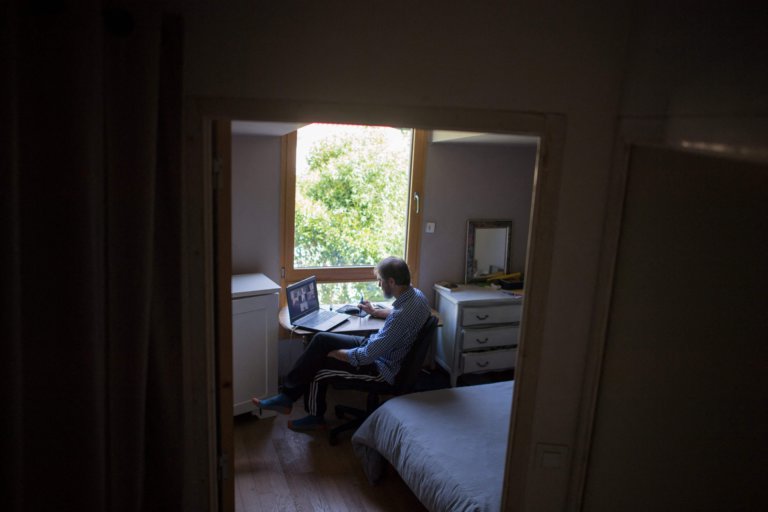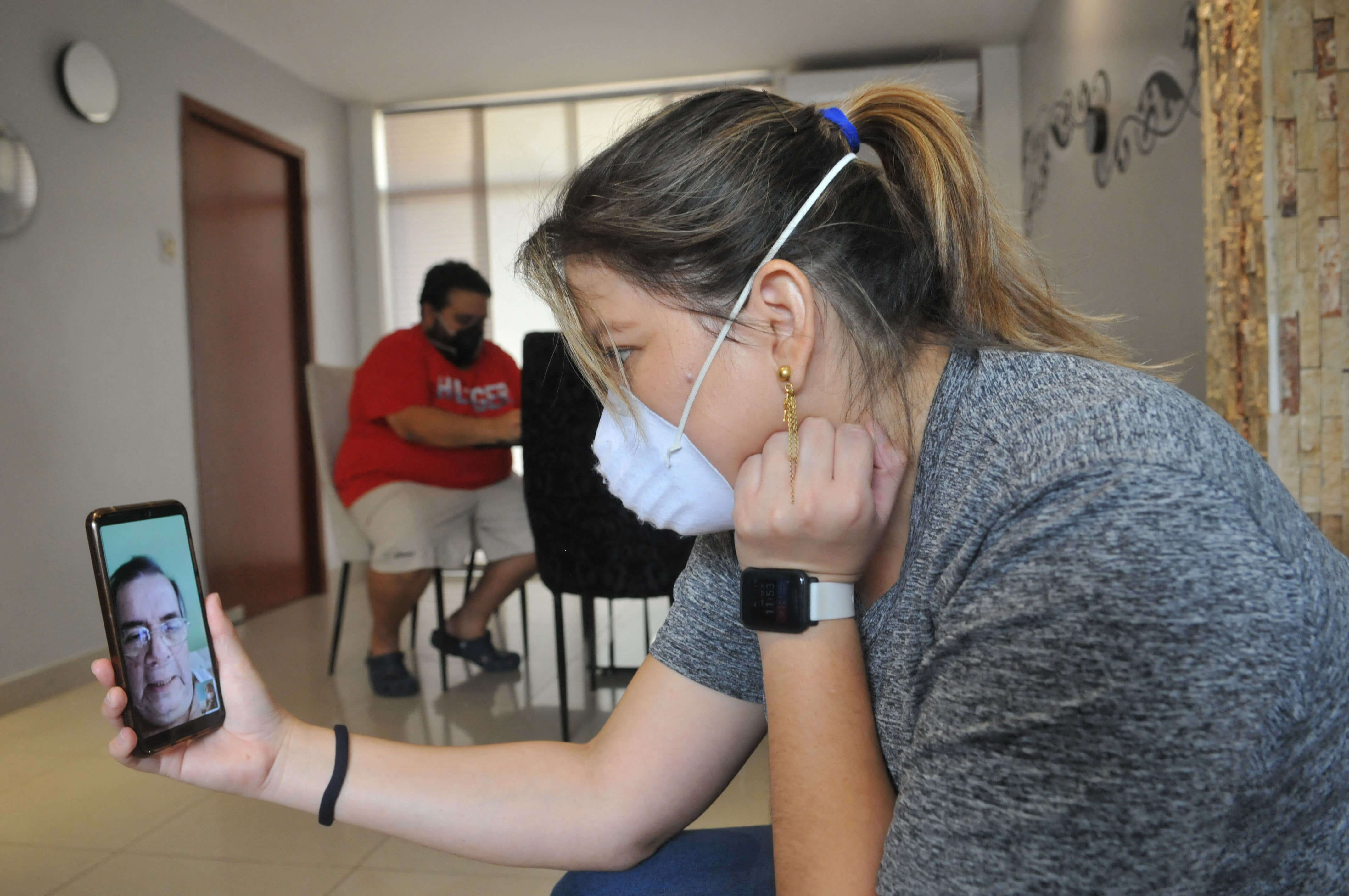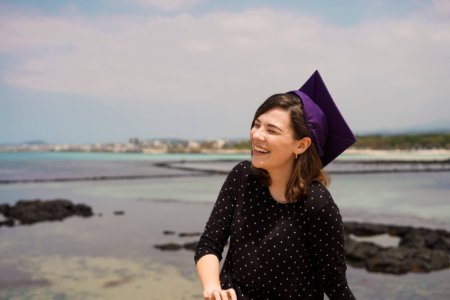
Every Monday at 4:30 pm British time — 5.30 pm in France — Elliot Bellman, 20, keeps an unlikely appointment with 97-year-old Jacqueline Tolu. “Comment allez-vous?” (how are you?) he asks Tolu over Skype.
Tolu, who lives in a retirement home in Bonneuil-sur-Marne, just outside of Paris, tells him she is doing fine. The pair’s weekly chats are breaking up the monotony and solitude of coronavirus restrictions imposed on both sides of the Channel.
Bellman goes on to tell her the latest news from Warwick University, in central England, where he is studying French, Spanish and Japanese. Tolu, in turn, regales him with memories of the 14 years she spent in Africa.
The conversation, inevitably, turns to COVID-19 and the nonagenarian teaches her young digital pen pal a new phrase: she is “ras-le-bol” — fed up. Tolu said she was delighted by the duo’s weekly sessions. “Ah yes, at 5.30, there’s little Elliot,” she explained. “I’m happy on Mondays!”
Since the inception of the Share Ami programme last year, there have been 110 pairings of French seniors with French learners. Nearly 50 of them are students at Warwick University, on the outskirts of Coventry, where Bellman is now in his third year of studies.
He enrolled in the pairing scheme late last year as the coronavirus caused major disruption to a language placement he had planned in Bordeaux, southwest France, as part of his course. “I thought it could have been a good experience, even if there was the lockdown in France,” Bellman, from Kent in southeast England, told AFP.
The online conversations have helped to stop his French from getting rusty — and combat a sense of isolation in lockdown. “I think that the two groups most affected by the pandemic and the lockdown are the younger generation and the older generation,” he said. “Especially for her (Tolu), she doesn’t have any family left, it can be good to help her if she’s lonely. It’s just nice to talk to someone, just randomly about anything.”
Learning French and ethical investment
Cathy Hampton, an associate professor of French studies at Warwick, said along with exposing students to language and culture, the programme was also an “ethical investment.” Inspired by an existing initiative in Brazil, Share Ami began in March 2020 during the first lockdown in France, Clement Boxebeld, one of programme’s founders said.
He had been working on the idea for two years and faced with the “great risk of social isolation”, said it was a great time to get the programme off the ground. Participants have a sense they are being “really being useful,” he added. The scheme has been so successful, learners have had to be patient.

The online conversations prevent students’ French . Source: Jose Sanchez/AFP
The association has just over 480 registered seniors but more than 6,800 candidates who want to talk to them. Around 50 volunteers are working to create the pairings according to participants interests. Some of those helping, like Isabel Cartwright, a 20-year-old French and Chinese student at Warwick, have experience of the pairings themselves. “For us all, to be honest, even for myself and I’ve got my family around me, sometimes it has been hard,” she said, referring to the difficulties of lockdown.
“It’s lovely to just create that friendship between generations,” said Cartwright, who was one of the first students to enrol with Share Ami. The second-year student has two pen pals on the other side of the Channel, Martine and Marie-Christine, who are both in their seventies.
“When I make mistakes, they encourage me, they are really patient with me,” she said. She hopes to meet them both when she goes to France for six months in August, a country she’s never been to before, with the exception of a brief trip to Disneyland Paris as a child.










